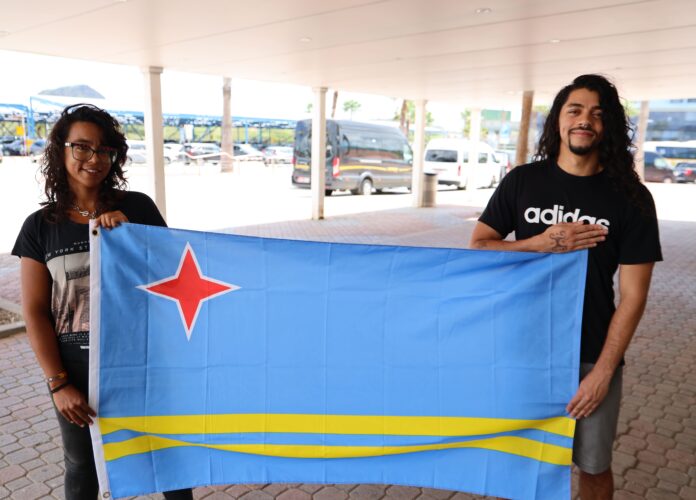Oriana Wouters, along with Nigel Maduro, traveled to Sint Maarten to attend the Caribbean Climate Justice Camp. Wouters explains that this is generally due to networking in the Caribbean via the network she has through the Caribbean Climate Justice Leaders Academy. She was invited by one of the organizations to participate as a representative of our island in the Dutch Kingdom.
Wouters says that in this way, she was informed and others asked her to participate either because they couldn’t go themselves or because they wanted to have a representative from Aruba. The topics they will receive training on include Energy Transition, nature, ecology, how to run a campaign as an activist, and the cultural and gender gaps and other inequalities that exist.
The goal of this is to learn from other climate leaders in other nations in the Caribbean. “We can bring things back to Aruba if we learn new things there and learn from our sister islands,” according to Nigel Maduro. This is the same young man known for the NO MORE HOTELS protest, an activist who garnered much attention with his protest aimed, among other things, at preserving and protecting our nature in Aruba, given all the growth in tourism in recent years. “What we can also do is network with other islands in the Caribbean facing climate change and other environmental situations. We want to see how they adapt and manage all of this too,” Maduro said.
Wouters emphasizes that the main goal behind all of this is to help activists acquire tools to continue advancing in their communities. “As an activist, I, for example, in the past asked the government to participate as Aruba in a document that the Dutch Kingdom would submit to the International Court of Justice asking what the role of international law is in climate change, and what are the obligations and consequences for states,” Wouters explains.
What happened was that the Netherlands prepared a document to submit their interpretation of international law on climate change, but it was sent in the name of the entire Dutch Kingdom. Through discussions with the Netherlands, Wouters was advised to also speak with the local government so that they too could participate and start talking to the Netherlands for this to truly become a Kingdom document.
“Because we, as an island within the Dutch Kingdom, tend to be excluded from the global climate change conversation.” This, according to Wouters, happens because our relationship within the Kingdom is very complicated. The Netherlands signed the Paris Agreement and that of the United Nations, excluding all its territories. In the interpretation of international law, Wouters explains that they speak of the state that signed, which is the Netherlands, but since they excluded Caribbean countries, it makes the Netherlands obligated to reduce emissions damaging the environment (CO2), but they can have Shell companies on the islands if they wish, for example, because the islands did not sign. Then there is a contradiction in our relationship with others, and these are things to ensure not to exclude Aruba. “Because Aruba is affected, and we must also focus on adaptation to the changes happening in the climate now.”







